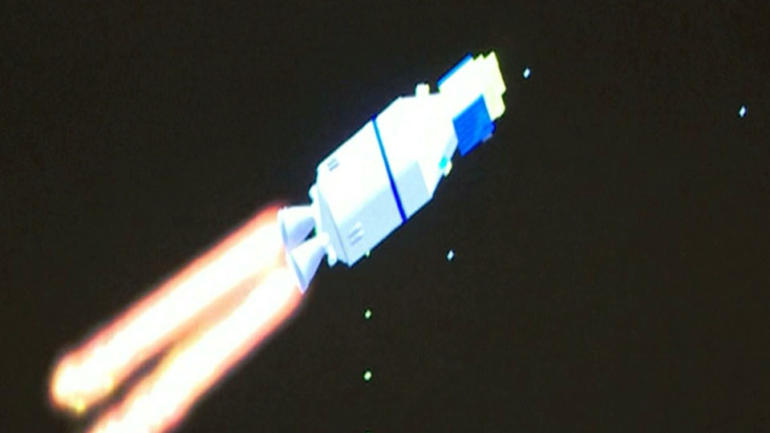I’ll be a full moon on Friday, a hallmark of the annual Mid-Autumn Festival. The festival celebrates the moon, and Chinese mythology speaks of a Jade Rabbit living on it.
That served as inspiration for the naming of China’s moon rover, Jade Rabbit, or Yutu-2i n Mandarin. As we look to the skies on this auspicious day, CGTN’s Gerald Tan reports on the achievements of China’s space program.
China made history this year when it became the first nation to land a spacecraft on the far side of the moon. The Chang’E-4, named after the Chinese goddess of the moon, touched down in early January.
And it gave us this: humanity’s maiden image of territory previously uncharted. That would be the start of many firsts…such as this attempt at growing a plant on the lunar surface.
In just over a week, the Yutu-2 began its operations to delve into this part of the moon never visible from earth.
“For us, the far side of the moon is mysterious and distant but we have always hoped to go there and see what it is really like,” said Wu Weiren from China National Space Administration. “This is a very good beginning. We are building a powerful space nation and this is an important symbol of that.”
That journey to building a powerful space nation began in 1970 when the Dongfanghong-1 was launched on a domestic rocket, making China only the fifth nation able to launch a satellite independently.
A little over 30 years later in 2003, came the Shenzhou 5 mission, China’s first manned space flight. China remains only one of three nations to independently launch an astronaut into space, or in this case, a taikonaut.
Tiangong-1, went into orbit in 2011. This experimental space station was designed to last just two years but continued to provide data for more than twice.
Now, China aims to build a research station on the moon within 10 years. It’s also planning to launch another space station, the Tiangong-3, by 2022 and is even inviting European researchers on board.
Yang Yuguang on China’s space program
Professor Yang Yuguang at the China Aerospace Science and Industry Corporation talked with CGTN’s Elaine Reyes about the latest achievements, and future prospects, of China’s space program.
 CGTN America
CGTN America

